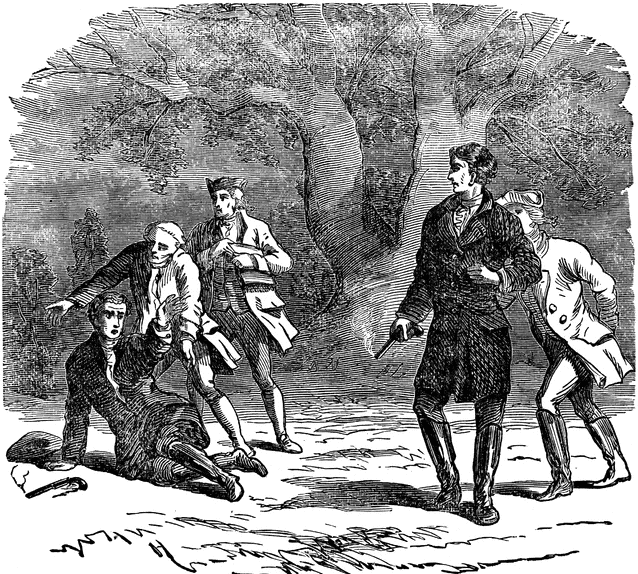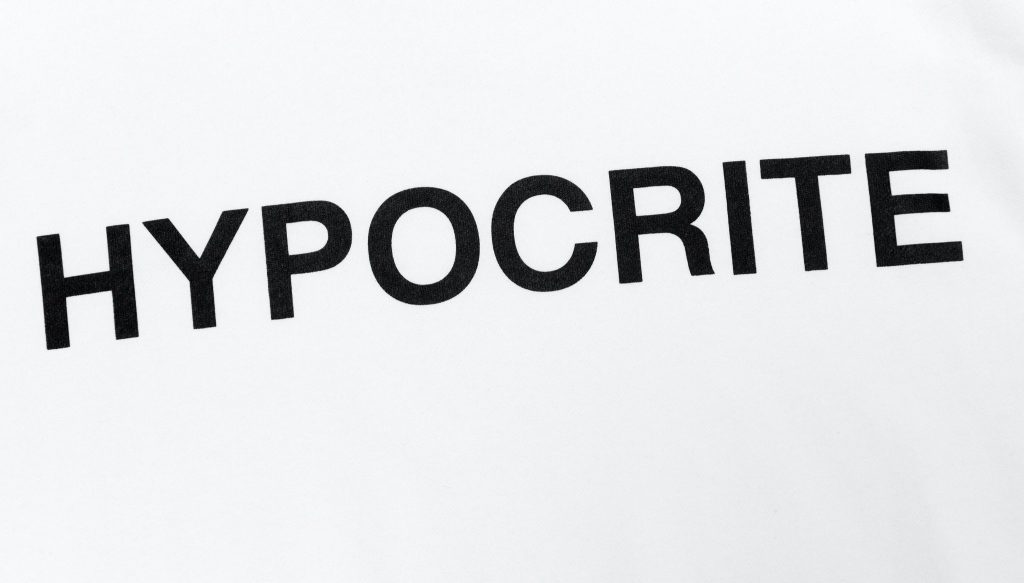Editor’s note: The following is extracted from South American Fights and Fighters, and Other Tales of Aventure, by Cyrus Townsend Brady (published 1913).
…. On Friday, the 30th of May, 1806, Charles Dickinson, a young man of brilliant abilities, born in Maryland and residing in Tennessee, met Andrew Jackson, of the latter state, near the banks of a small stream called the Red River, in a sequestered woodland glade in Logan County, Ky., a day’s ride from Nashville.
Unwittingly, and with entire innocence on the part of both parties, Andrew Jackson had placed his wife in an equivocal position by marrying her before a divorce had separated her from her husband. Absolutely no blame, except, perhaps, a censure for carelessness, attaches to Jackson or his wife, and their whole life together was an example of conjugal affection. However, his enemies—and he had many—found it easy to strike at him through this unfortunate episode. There did not live a more implacable and unforgiving man, when his wife was slandered, than Andrew Jackson.
Dickinson, who was a political rival, spoke slurringly of Mrs. Jackson. He apologized for it on the plea that he had been in his cups at the time, but Jackson never forgave him. A political difference as an ostensible cause of quarrel soon developed. Dickinson sent a challenge which was gladly accepted. The resulting duel was probably the most dramatic that ever occurred in the United States. Dickinson was a dead shot. So, for that matter, was Jackson, but Dickinson was remarkable for the quickness of his fire, while Jackson was slower. The arrangements stipulated that the combatants should be placed at the close distance of eight paces; that the word “fire!” should be given, after which each was to fire one shot at will. Rather than be hurried and have his aim disturbed, Jackson determined to sustain Dickinson’s fire and then return it at his leisure.
“What if he kills you or disables you?” asked his second.
“Sir,” replied Jackson deliberately, “I shall kill him though he should hit me in the brain!”
This is no gasconade or bravado, but simply an evidence of an intensity of purpose, of which no man ever had a greater supply than Andrew Jackson.
Dickinson fired instantly the word was given. A fleck of dust arose from the loose coat which covered the spare form of the General, but he stood apparently untouched. Dickinson, amazed, shrank back from the peg indicating his position. Old General Overton, Jackson’s second, raised his pistol.
“Back to the mark, sir!” he thundered, as the unhappy young man exclaimed in dismay.
“Great God! Have I missed him?”
Dickinson recovered himself immediately, stepped back to the mark, and folded his arms to receive Jackson’s fire. The hammer of the Tennesseean’s pistol stopped at half-cock. He deliberately re-cocked his weapon, took careful aim again, and shot Dickinson through the body. Seeing his enemy fall, Jackson turned and walked away. It was not until he had gone one hundred yards from the dueling ground and was hidden by the thick poplar trees, that his second noticed that one of his shoes was filled with blood. Dickinson had hit the General in the breast, inflicting a severe wound, and might have killed him had not the bullet glanced on a rib. The iron-nerved Jackson declared that his reason for concealing his wound was that he did not intend to give Dickinson the satisfaction of knowing that he had hit his enemy before he died.
Twenty-two years after, as Jackson stood by his dead wife’s body, he “lifted his cane as if appealing to heaven, and by a look commanding silence, said, slowly and painfully, and with a voice full of bitter tears:
“‘In the presence of this dear saint I can and do forgive all my enemies. But those vile wretches who have slandered her must look to God for mercy!'”










https://www.newsobserver.com/news/local/education/article217035815.html
5
4.5